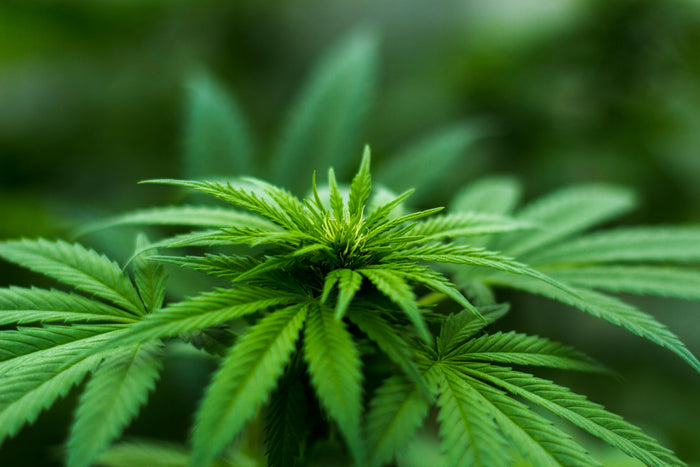The Difference Between THCA and THC: Why It's Legal to Sell and Ship THCA Online
In the rapidly evolving cannabis industry, there are many cannabinoids gaining attention for their unique properties and effects. One of the key cannabinoids making headlines recently is THCA, or tetrahydrocannabinolic acid. You may have heard of it in discussions surrounding THC, but what exactly is THCA, and how does it differ from its more famous counterpart, THC? More importantly, why is it legal to sell and ship THCA products online, even in states where THC is tightly regulated?
Let's break down the science and the legal landscape behind these two cannabinoids.
What is THCA?
THCA, short for tetrahydrocannabinolic acid, is a non-psychoactive compound found in raw and live cannabis plants. It is the precursor to THC, the compound responsible for the feel good component commonly associated with marijuana.
In its natural form, cannabis contains THCA rather than THC. When THCA is heated through a process known as decarboxylation—which occurs when you smoke, vaporize, or cook cannabis—it converts to THC.
What is THC?
THC (tetrahydrocannabinol) is the psychoactive compound in cannabis that is responsible for that feel good feeling. It's created when THCA is exposed to heat and loses a carboxyl group, turning it into the compound we commonly refer to as THC.
THC interacts directly with the brain’s cannabinoid receptors, particularly the CB1 receptor, which alters mood, perception, and cognition. This is why THC is the main focus of recreational cannabis users, as it delivers the sought-after effects like euphoria, relaxation, or increased sensory perception.
THCA vs. THC: Key Differences
-
Psychoactivity:
- THCA is non-psychoactive. Consuming raw cannabis, such as in fresh juice or smoothies, will not produce any "high" because the THCA has not been converted to THC.
- THC, on the other hand, is psychoactive and induces the mind-altering effects cannabis is known for.
-
Medical Potential:
- THCA is being researched for its potential medicinal properties, including anti-inflammatory, anti-emetic, and neuroprotective effects. It is often promoted in wellness circles for these benefits without causing the psychoactive effects that some people may want to avoid.
- THC is also well-documented for its medical applications, but its psychoactive nature can be undesirable for some patients.
-
Decarboxylation:
- THCA is the raw, inactive form of THC. It requires exposure to heat (via smoking, vaping, or cooking) to become THC.
- THC is the active form that interacts with your body’s endocannabinoid system to produce psychoactive effects.
Why is THCA Legal to Sell and Ship Online?
The legality of selling and shipping THCA hinges on the fact that, in its natural form, THCA is not considered a psychoactive compound and therefore is not classified the same way as THC under federal law.
The 2018 Farm Bill legalized hemp-derived products, provided they contain no more than 0.3% THC by dry weight. Since THCA does not fall under the definition of THC, products containing raw THCA are often considered legal to sell and ship across state lines, even though the cannabinoid can be converted into THC under certain conditions.
However, it's important to note the following key points about THCA's legality:
-
Raw THCA is Non-Psychoactive: Since THCA in its unheated, natural form does not produce psychoactive effects, it does not fall under the same regulatory scrutiny as THC.
-
Low THC Content: Many THCA products are derived from hemp and comply with the 0.3% THC limit set by the 2018 Farm Bill. This means that, even though THCA can convert to THC when heated, the product itself in its marketed form stays within legal THC limits.
-
Loophole in Regulation: While THC is tightly regulated in many states, THCA products are often marketed as a "loophole" product. Since THCA itself is not the same as THC, it is not always classified as an illegal substance in states where THC is prohibited. This allows companies to sell THCA-infused products online, even in states where THC-rich products are restricted.
-
Regulations Vary by State: It’s important to keep in mind that state regulations can vary. While THCA products are legal at the federal level, some states may have additional restrictions or limitations on shipping THCA-based products. Always check your local laws before purchasing or selling THCA products.
The Future of THCA and Cannabis Regulation
The popularity of THCA has risen significantly, both for its potential health benefits and for its perceived legal status. As more consumers and companies catch on, we can expect to see ongoing changes in how cannabinoids like THCA are regulated and classified.
For now, THCA provides a legal and non-psychoactive alternative for consumers interested in cannabis's wellness benefits without the high associated with THC. However, as always in the cannabis industry, regulations can shift, and it is crucial to stay informed about both federal and state laws.
Conclusion
While THCA and THC share a chemical relationship, their differences in psychoactivity and legal status create two distinct markets. THCA, in its raw, non-decarboxylated form, is not psychoactive and falls under a different set of regulations, making it legal to sell and ship online, provided the products meet federal guidelines on THC content.
As interest in THCA grows, it presents new opportunities for both consumers and businesses. However, staying updated on the latest legal changes and ensuring compliance with both state and federal laws remains essential for any business operating in the cannabis space.
If you’re curious about trying THCA products or considering adding them to your lineup, now is a great time to explore the possibilities and advantages they offer within the current legal framework.



